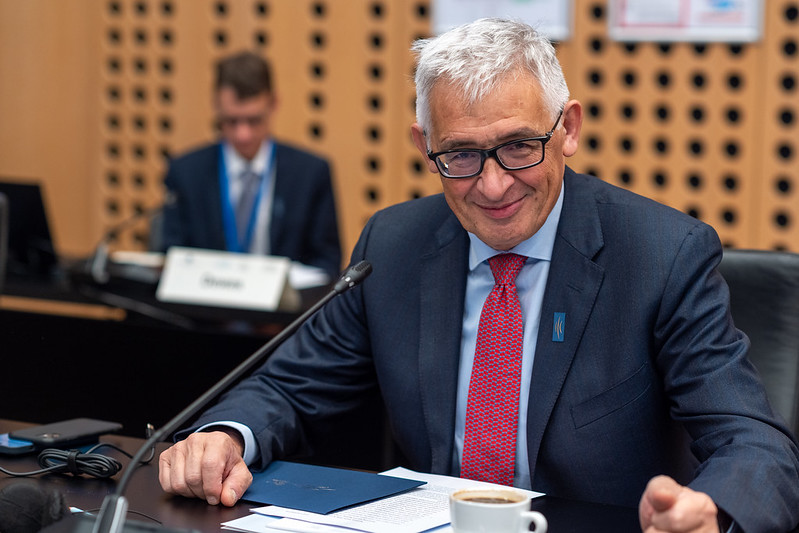ECB’s Cipollone Worried About Downward Pressure on Inflation From China, Weak Economy
18 February 2025

By Marta Vilar – MADRID (Econostream) – European Central Bank Executive Board member Piero Cipollone on Tuesday indicated concern about downward pressure on inflation coming from economic weakness and the potential re-routing to Europe of inexpensive Chinese goods hit by US tariffs.
In the Q&A session at an MNI Connect webcast, Cipollone said that on the ‘real side of the economy the risks are seriously on a downward direction … One would expect that the output gap is not going to stay open, therefore putting downward pressure on inflation.’
The most concerning aspect to Cipollone was the potential re-routing into Europe of Chinese goods subject to US tariffs.
‘What scares me the most is … the fact that if China gets strong tariffs, they have to sell their goods somewhere, and I think that they will sell it in our markets with two effects’, he said.
Cipollone expected one effect to be a reduced demand for European goods and the other to be a decrease on input prices.
‘This also has a strong impact on inflation’, he said.
However, he downplayed the potential impact that the recent energy price surge could have on overall inflation.
If US tariffs were to slow down global economic growth, demand for oil and gas would decrease, he said.
‘At the same time, we could see the US increasing the supply of gas and oil’, he said.
One of the key policy objectives of the US was to lower gas prices, so one could expect President Donald Trump to do whatever was necessary to reduce these, which would have an impact on prices in Europe, he said.
Asked how the ECB should weigh the use of its two tools, interest rates and the balance sheet, if it were to ease its stance further, Cipollone answered, ‘I would say à la guerre comme à la guerre.’
‘If something happens, it would be silly not to use all the instruments you have’, he said.
After rhetorically asking himself how that should be calibrated, he said, ‘Well, I do not have in mind, you know, the full econometric model of the ECB to evaluate one or the other … but that’s what we do when we make a projection, we study different policy paths’.
Related articles:
- ECB’s Cipollone: Our Rate Cuts Should Compensate for Tightening Due to QT
- ECB Insight: Cipollone Comments Suggest ECB Readying for New Policy Environment
- ECB’s Cipollone: Data Since December Don’t Suggest Major Shift in Course of Monetary Policy
